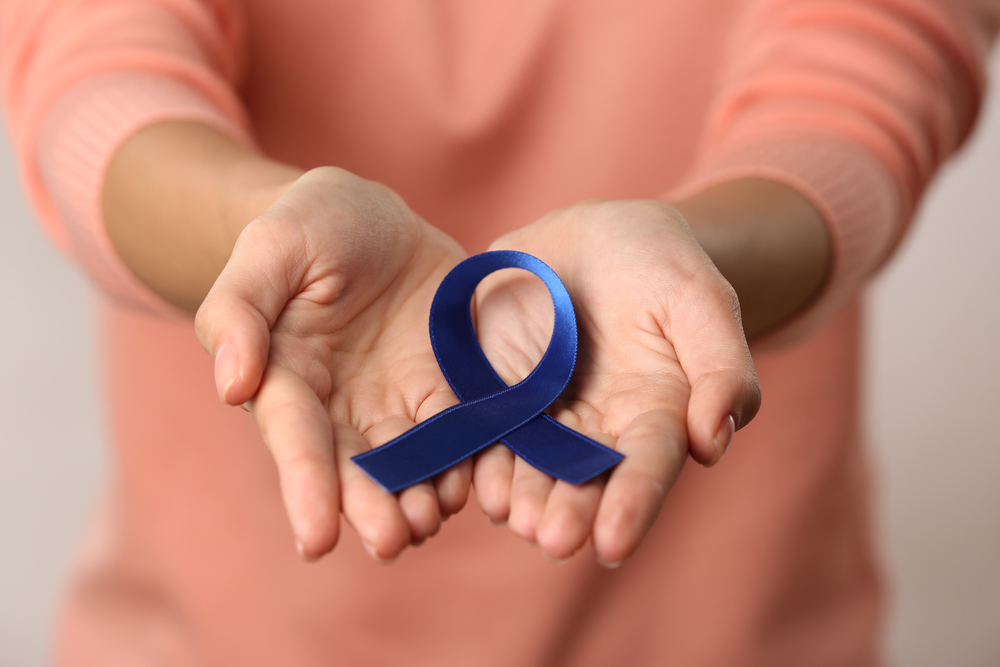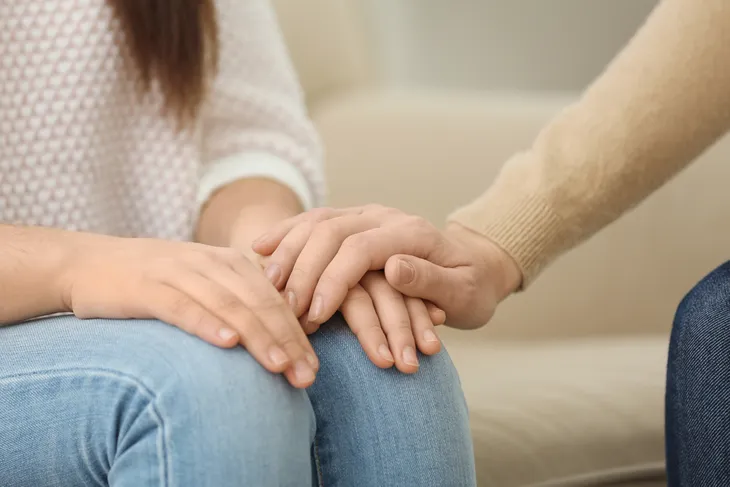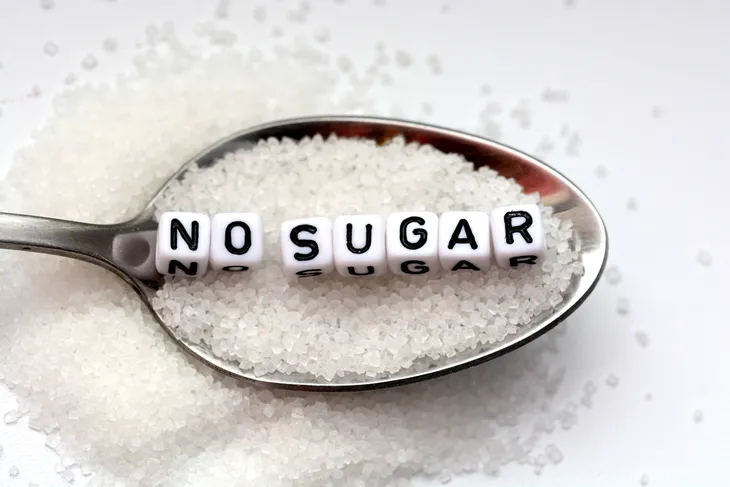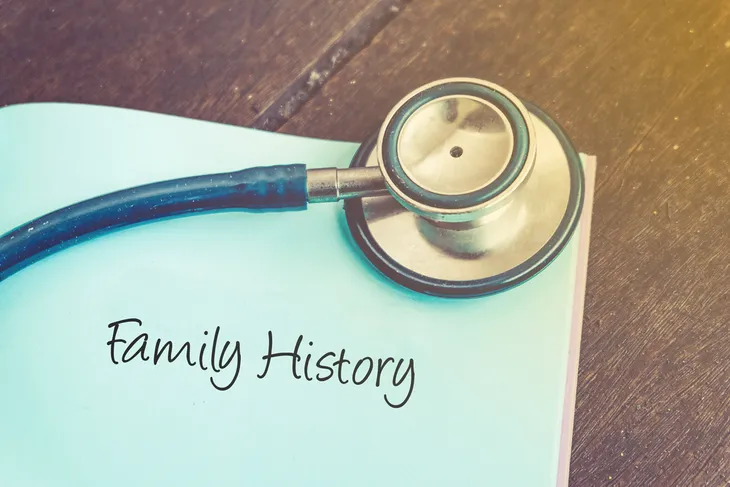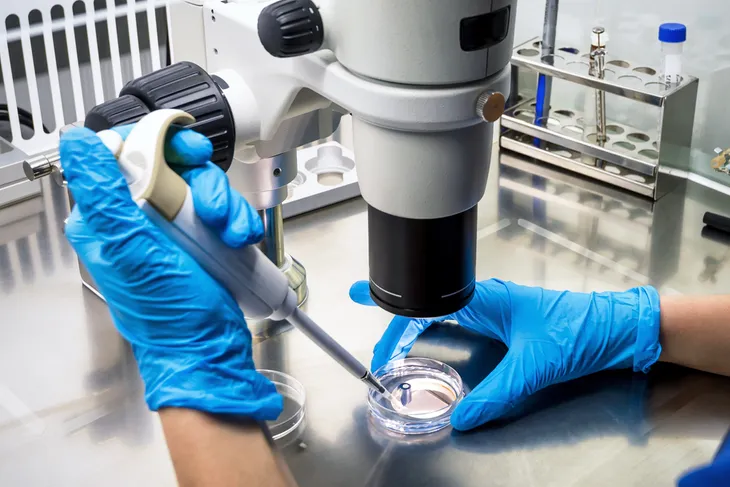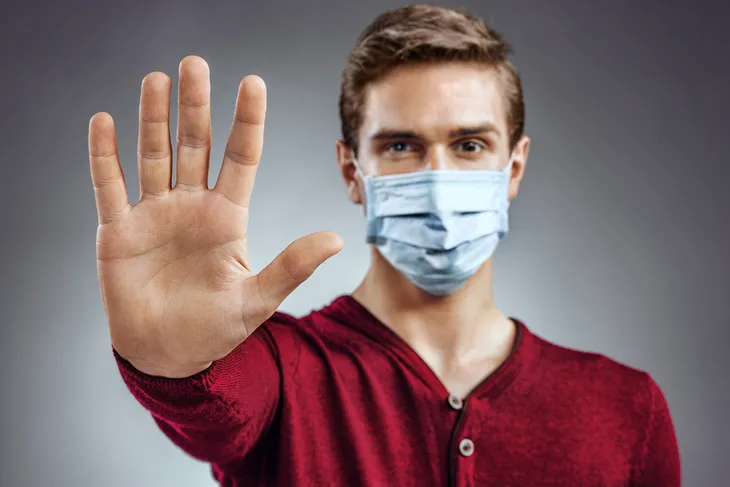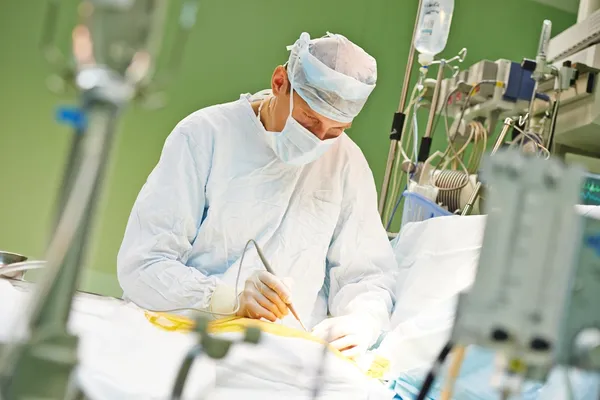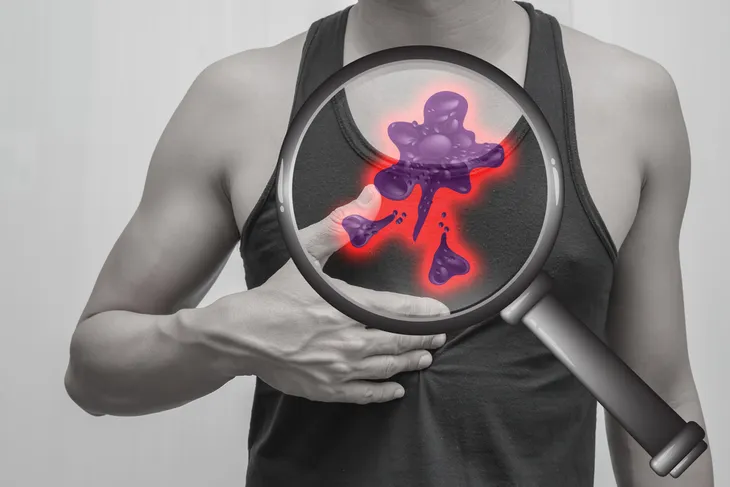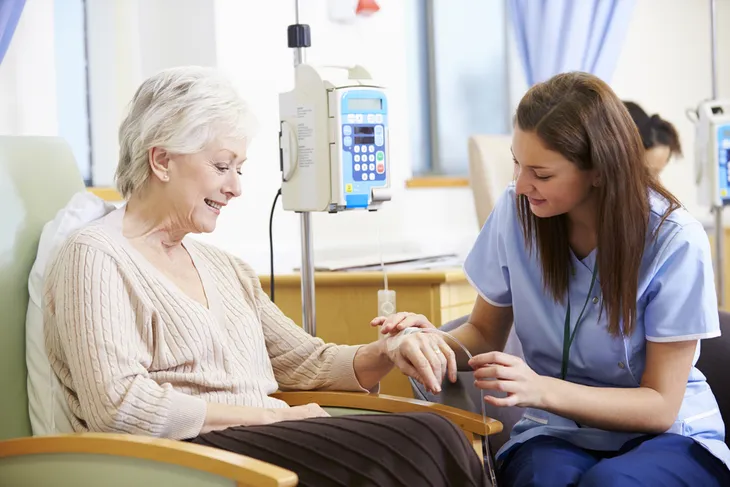Cancer is a scary word and an even more terrifying concept. You’d be hard pressed to find someone who hasn’t been personally affected by cancer, or at least know of someone who has. It is something we all fear deep down, and unfortunately like many other common and widespread health afflictions, there’s a lot of misinformation out there that is often spread by word of mouth or on the internet.
We’re here to dispel any wishy washy myths or misconceptions that have been circling around the topic of cancer. We’re also going to clarify what the truth is behind each of these myths by providing cold hard facts that have been proven through scientific research. Here are 14 of the biggest cancer myths and the truth behind them…
Cancer is a Death Sentence
While cancer is still one of the leading causes of death in the United States, cancer-related deaths have been on the decline since the 1990s. According to the National Cancer Institute, the 5-year survival rates for many cancers like prostate, breast, and thyroid have gotten significantly better. They are all up 90-percent and the 5-year survival rate for all cancers combined is up 67-percent. If you’d like to see more information on cancer survival rates, visit the Annual Report to the Nation on the Status of Cancer.
While this is all great news, cancer should still be taken seriously and prevented when possible. The National Cancer Institute notes that rates of survival are based of large groups of people, so for a more accurate reading survival rates should be calculated based off individual factors like, “whether the cancer is slow or fast growing, how much the cancer has spread in the body, whether effective treatments are available, the person’s overall health, and more.”
Sugar Causes Cancer
While there is research that shows cancerous cells consume more sugar than normal cells, there is no evidence that sugar causes cancer. What has been proven is that eating too much sugar on a consistent basis is bad for overall health and can cause conditions like obesity, diabetes, and unhealthy weight gain, all of which will then increase a person’s likelihood of developing cancer.
In this case, moderation is key. “All cells in the body, both healthy cells and cancer cells, depend on sugar to grow and function. However, eating sugar won’t speed up the growth of cancer, just as cutting out sugar completely won’t slow down its growth. This doesn’t mean you should eat a high-sugar diet, though,” writes the American Society of Clinical Oncology (ASCO). Eating a healthy and well balanced diet is the best form of prevention when it comes to diet.
If a Family Member Has Cancer, I Will Too
This is partially true. In some cancers genetic link or family history plays a bigger role than in others, but it’s never a complete prediction of a person’s future. The National Cancer Institute states that only 5 to 10-percent of cancers “are caused by harmful mutations that are inherited from a person’s parents. In families with an inherited cancer-causing mutation, multiple family members will often develop the same type of cancer.” These types of cancers are called “familial” or “hereditary.” Cancers that are known for being passed down genetically are breast cancer, ovarian cancer, and colorectal cancer. But according to the American Society of Clinical Oncology, a person’s best bet against cancer is to adapt a healthy lifestyle. But again, this is very rare. This means 90 to 95-percent of cancers develop from a mutation caused by environmental factors or aging.
The ASCO also notes that 4 out of 10 cancers can be prevented through simple lifestyle changes. Even if an immediate family member developed cancer, you should still eat healthy, exercise regularly, maintain a healthy weight, as well as limit consumption of alcohol and the use of tobacco products.
On the other hand, just because no one in your family has ever been diagnosed with cancer doesn’t mean you have no chance of getting it. It doesn’t work that way either. A person should always try to prevent cancer no matter what their family history is.
A Positive Attitude is the Cure
We’re not saying that people shouldn’t have a positive attitude or lose all hope. That would be grim! But some people believe that a positive attitude is part of a successful treatment, prevention, or even a cure and it’s not. The truth is that it is beneficial to have a positive attitude to improve a person’s quality of life, especially after a cancer diagnosis. It’s normal for someone who’s been diagnosed with cancer to feel angry, sad, or disappointed. It can be incredibly hard to have a positive outlook on life after something like that happens. It affects a person’s desire to make social connections, remain active, or seek any kind of emotional support which are all necessary for coping with cancer.
A positive attitude can be helpful to keep a person’s spirits up so that they don’t give up or shut themselves out from any support from family and friends, but there’s no scientific research that a positive attitude can change how a treatment works or whether cancer can be cured.
Someone is Hiding a Cure
There are lots of people who believe that a cure to cancer has been discovered and drug companies, doctors, the government, are hiding it so they can make more money. This is simply not true. While it sounds like a wild and crazy conspiracy theory, According to VeryWell Health, approximately 30-percent of Americans believe it to be true. Think of it this way, doctors and the people who work for drug companies are also losing family members to cancer, so why would they willingly hide a cure?
Unfortunately, cancer research and studies take time and there is no such thing and will never be such a thing as a general cure for cancer because all cancers are different and extremely complex. “Cancer actually includes a large group of diseases. Each can have many different causes. Despite advances in diagnosis and treatment, doctors still have much to learn about what triggers a cell to become cancerous and why some people with cancer do better than others,” says the Mayo Clinic. On top of that, all of the hundreds of different types of cancers respond differently to various types of treatment.
If I Had Cancer, I’d Know
The Mayo Clinic points out that some cancers do not cause any pain. This is also the same for warning signs. Many people assume they are completely healthy because they do not feel anything, but there are some cancers that can sneak up undetected so it’s important to maintain regular checkups with healthcare professionals and to keep on top of any cancer screening tests. The Mayo clinic also notes that while they also aren’t a guarantee for perfect health, “routine screening has been linked to a decrease in deaths from cancers of the cervix, breast, lung, colon and rectum.”
Of course there are many cancers that do cause pain, especially once a patient is into the advanced stages. Thankfully doctors have made great strides toward improving and managing any pain related to cancer. While it might not be eliminated, in some cases it can be controlled, says the source.
Cancer is Contagious
The short answer to this is, no, cancer is not contagious. However, the theory behind this myth might have started because there are some cancer that are caused by viruses and bacteria that can be spread from person to person. “Certain types of human papillomavirus (HPV) have been known to cause cervical, anal, and some kinds of head and neck cancers,” says the American Society of Clinical Oncology (ASCO).
For example, the same sources goes on to explain that Hepatitis B and C are viruses that can increase the risk of developing liver cancer, while the H. pylori bacteria puts people at risk for developing stomach cancer. “It is important to remember that while the viruses and bacteria that cause some cancers can be spread from person to person, the cancers they cause cannot be spread from person to person,” writes ASCO.
Surgery Spreads Cancer
Some people believe that surgical options like a biopsy or even just exposing the cancer to air can disrupt it and cause the cancer to spread. This is not true. The only time cancer will be worse after surgery is if the surgeon opens up the body and finds that it has spread further than what they had originally thought. In this case the cancer was already like that, it did not spread further after the fact. The Canadian Cancer Society explains, “There is an extremely low chance that a biopsy will cause cancer to spread. Some tumors can’t be safely biopsied without spreading cancer cells. This is sometimes referred to as seeding of tumor cells.” If this is ever the case then a doctor will avoid core biopsy.
The source also writes, “There is no evidence that exposing a tumor to air causes it to grow more rapidly or spread to other parts of the body.”
Does Plastic Cause Cancer?
Many people are concerned about plastic and the effects it can have on our health, specifically when it comes to plastic water bottles and heating up food in plastic in the microwave. The truth is anything that says it is “microwave safe” is. The problem arises when people use plastic containers that are not meant for reuse or even the microwave for that matter. For example some people keep and reuse margarine tubs, take-out containers, or whipped topping bowls. These are the types of things that could potentially leak chemicals into your food when they are heated up in the microwave.
When it comes to water bottles there is no evidence that reusing a water bottle is unsafe. Lots of people worry that when they leave a water bottle in a warm car or freeze it, drinking from it will increase their risk of developing cancer. The only danger from water bottles is when people reuse them without properly cleaning them or left in warm areas where bacteria can grow. This is also true with any other kind of containers. Remember products like plastic water bottles are made for one-time use only.
Are There Foods that Prevent Cancer?
There’s a lot of misinformation out there about cancer fighting foods or foods that prevent cancer which is simply not true. Diet plays a huge role in our overall health which protects us against cancer, but it in no way will prevent it or cure cancer.
“People think that there’s a type of food that can solve all your cancer problems and reduce your cancer risk but the evidence just isn’t there. What we see from an evidence perspective is that overall dietary pattern makes a difference,” says Colleen Doyle, MS, RD, director of active living for The American Cancer Society when talking to Reader’s Digest. “Now there certainly are foods that I think of as ‘super’ that are really healthy and packed with nutrients, like colorful fruits and vegetables, whole grains, and healthy protein sources like fish and beans. We should be eating a lot of them — just not with the idea that any of those is going to prevent cancer.”
Does Antiperspirant and Deodorant Cause Cancer?
There is a widespread rumor that deodorant or antiperspirant can cause breast cancer because they stop the body from sweating out toxins, are applied near the lymph nodes and contain aluminum. However, the National Institute of Cancer has found no evidence to link antiperspirant or deodorant to cancer. The Canadian Cancer Society explains that while it’s true they stop sweat from leaving the body, sweating is a natural way for the body to cool down. It is not meant to release toxins from the body. Also while the lymph nodes near the armpits do get rid of some toxins, the kidney and liver are where the majority of harmful toxins are released.
As for the aluminum, that part is true. But the Mayo Clinic states that while there have been reports to examine whether or not aluminum compounds and parabens that enter through the skin can be harmful, there has never been a definitive answer to this question or direct link drawn between them and breast cancer. Also the Canadian Cancer Society notes that doctors will usually tell you not to wear deodorant with aluminium before having a mammogram because it could show up on the images and lead to an inaccurate result or make it harder for them to find any abnormalities. If you’re still concerned about certain chemicals, there are many chemical-free options.
If I Don’t Smoke or Drink I Won’t Get Cancer
While this one doesn’t seem fair, the unfortunate truth is that life isn’t fair and cancer doesn’t seem to be able to weed out the good people from the bad people. Just because a person doesn’t smoke or drink doesn’t mean they are immune from developing head or neck cancer. The National Institute of Cancer says that based on the most recent gathering of data, about 38-percent of men and women will be diagnosed with cancer at some point in their life.
“Most cancers are caused by genetic changes that occur throughout a person’s lifetime as a natural result of aging and exposure to environmental factors, such as tobacco smoke and radiation,” writes the source. But there are also many other factors that can play a huge role in a person’s likelihood of developing cancer like what kind of food they eat or how much exercise they get.
Only Women Can Get Breast Cancer
When we think of breast cancer we naturally think of it as a female-only cancer, but in reality it affects men and women. We just don’t hear about it affecting men as much as we do with women. VeryWell Health says an estimated 2300 men will be diagnosed with breast cancer this year and 500 of these men will die from it. While it’s extremely uncommon, it’s not unheard of and it does still happen.
Chemotherapy Causes Hair Loss
We previously discussed in this article that not all cancers are the same which is why there is no overarching cure for all cancer. Since they all must be treated differently, there are different chemotherapies for each. Not ever kind of chemotherapy causes a person to lose their hair. While there are some that do, there are others that don’t.
“The chemotherapy that is utilized depends on the type of cancer as well as the stage of the cancer. Movies focus on the ones with the more dramatic effects more often because they are exactly that, more dramatic. But many chemotherapies are very well tolerated and have much more subtle side effects,” says Allen Kamrava, MD, MBA, FACS, FASCRS to Reader’s Digest.
